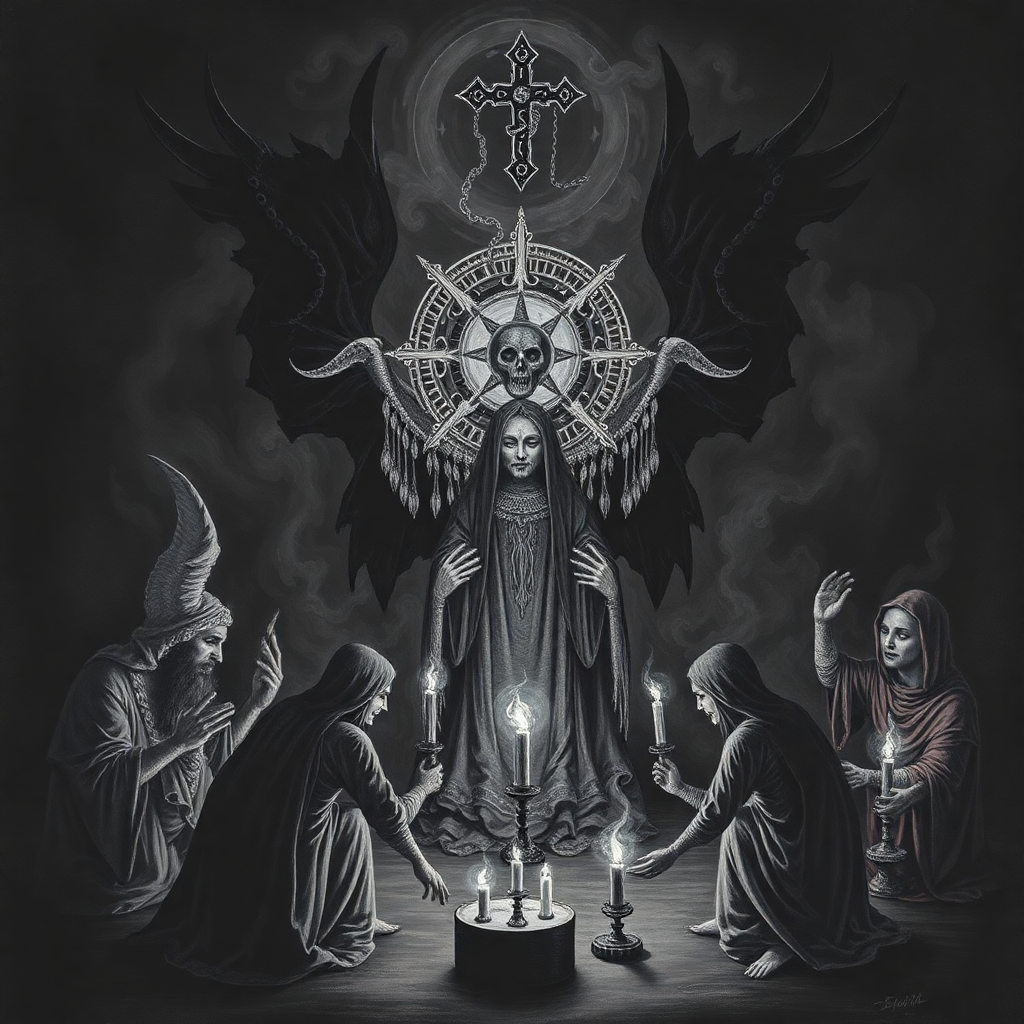Are occult practices real?
Skeptics often argue that many of the claims made by practitioners lack empirical evidence and are rooted in superstition. They view the experiences described by practitioners as psychological phenomena rather than genuine occurrences.
The term "occult" often conjures images of mysterious rituals, arcane symbols, and a hidden knowledge kept from the everyday person. While the practice of occultism can be traced back to ancient civilizations, the question still looms large: are occult practices real? This exploration takes us through the various facets of occultism, its historical foundations, cultural implications, and the experiences of those who engage with it.
Understanding Occultism
Occult practices encompass a wide array of beliefs and activities that are often centered around the idea of hidden knowledge or the supernatural. This may include astrology, alchemy, divination, magic, and the study of esoteric philosophies.
The word "occult" itself comes from the Latin "occultus," meaning "hidden" or "concealed," which aptly describes the often secretive nature of these practices. Throughout history, many individuals and groups have sought to uncover what lies beyond the veil of the physical world, leading to the rich tapestry of beliefs that exist today.
A Brief Historical Overview
The roots of occult practices can be traced back thousands of years, with civilizations such as the Egyptians, Greeks, and Chinese all contributing to its evolution. Ancient Egyptians practiced various forms of mysticism, believing in the power of spells and the afterlife. The Greeks embraced philosophical schools like Neoplatonism, which intertwined with magical practices. In the Middle Ages, the rise of the Hermetic tradition, influenced by texts attributed to Hermes Trismegistus, marked a significant revival of interest in alchemy and astrology.
The Renaissance further fueled the exploration of occult knowledge, leading to the establishment of organizations like the Rosicrucians and the Hermetic Order of the Golden Dawn. Each of these movements sought to advance understanding of the spiritual and material worlds, influencing modern esoteric practices.
Striking a Balance: Skepticism and Belief
In discussing the reality of occult practices, one cannot ignore the divide between skeptics and believers. Skeptics often argue that many of the claims made by practitioners lack empirical evidence and are rooted in superstition. They view the experiences described by practitioners as psychological phenomena rather than genuine occurrences. This perspective finds ground in the scientific method, which demands reproducible results and tangible evidence.
On the other hand, many practitioners of occult arts assert that their experiences are genuinely transformative. They often speak of profound insights gained through rituals, meditative practices, or spells. For these believers, the experiences warrant validity and are a testament to the effectiveness of their practices. Thus, the dialogue between skepticism and belief remains alive, with both sides presenting compelling points.

Cultural Perspectives on the Occult
Cultural interpretations of the occult vary widely. In some cultures, practices categorized as "occult" may be integrated into mainstream spiritual or religious practices. For instance, indigenous cultures around the world may engage in rituals and beliefs that encompass what outsiders might label as occult. These practices often play a significant social and spiritual role within their communities, showcasing the importance of context when discussing occultism.
Conversely, in more Westernized societies, occult practices may carry a stigma, often associated with negative connotations, such as witchcraft or devil worship. This dichotomy speaks to how societal perceptions shape the understanding of what is deemed "real" or "valid" within occult practices. Such cultural lenses influence the participants' experiences and the resonance of these practices in contemporary life.
Personal Experiences and Anecdotal Evidence
Many individuals report transformative experiences tied to occult practices, leading to personal growth, enhanced intuition, or a deeper connection with the universe. These stories—often passed down through generations or shared in online communities—serve as both inspiration and validation for those engaged in the practices. While anecdotal evidence may not satisfy scientific inquiry, it plays a critical role in shaping the beliefs of practitioners.
Stories of mystical encounters, successful divinations, or the realization of intentions through spellwork often reinforce a belief in the efficacy of these practices. Such narratives illustrate how the human experience shapes the understanding of what is real. For many, the subjective nature of these encounters helps to define their spiritual path.
Conclusion: The Quest for Understanding
The question of whether occult practices are real may never be definitively answered due to the complexity of human belief systems and experiences. While skeptics may challenge the validity of these practices based on empirical standards, believers find meaning and connection in their engagement with the occult. Ultimately, the realm of the occult invites individuals to explore deeper aspects of existence, encouraging a personal journey through the hidden knowledge of the universe.